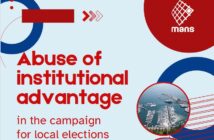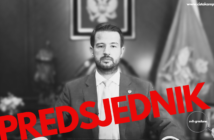Financing of election campaigns has long been the cause of affairs triggering political crises in Montenegro. The current Law on Financing of Political Entities and Election Campaigns was adopted in response to the crisis triggered by the “Recording” affair that concerned a pre-election abuse of public funds by the ruling party. After the amendments to the Law were adopted, a government of electoral trust was formed, tasked with providing greater control over the use of state resources ahead of the 2016 parliamentary elections.
On the day of the elections, charges were made against an opposition entity, related to, among other things, financing from abroad. This affair has sparked a political crisis, and relevant court proceedings are still ongoing.
Meanwhile, ahead of each election, the media and civil society have published information on various illegalities in the financing of election campaigns of the ruling party. These allegations culminated in the recently published “Envelope” affair that refers to unannounced donations for election campaign. This affair has also sparked a political crisis that is still ongoing.
At the time of making this publication, there is a special committee in the Parliament in charge of drafting new legislation, but the opposition is, mostly, in a boycott and does not participate in the work of this body.
However, all actors agree that it is necessary to amend the legislation. A particular problem is control and supervision over the implementation of the Law out into the hands of the Agency for Prevention of Corruption, which is perceived as biased and favoring the ruling party.
The purpose of this publication is to contribute to a better overview of the problem of electoral campaign financing, leading to amendments to electoral laws that will precede the upcoming parliamentary elections.
Wehighlight numerous problematic practices of political entities and state institutions in financing election campaigns ever since the adoption of the new Law, i.e. from 2016 to 2018. During that period, elections at all levels were held at various intervals: parliamentary, presidential and local elections in all municipalities.
This publication consists of two parts: in the first part, we have analyzed the available financial documents of the political entities that participated in the elections, and in the second part pre-election spending of public funds. It
lists the most important legal provisions, analyzes available statistical data and presents case studies. Particular attention was given to the analysis of control and supervision over the implementation of the Law in both segments as well as to access to information necessary for the public control of election campaign financing.
In the process, we have used data collected through detailed monitoring of parliamentary, presidential and local elections in several municipalities, but also subsequently collected information on all elections held in the course of the three years that were observed.
Complete publication download HERE (PDF)



